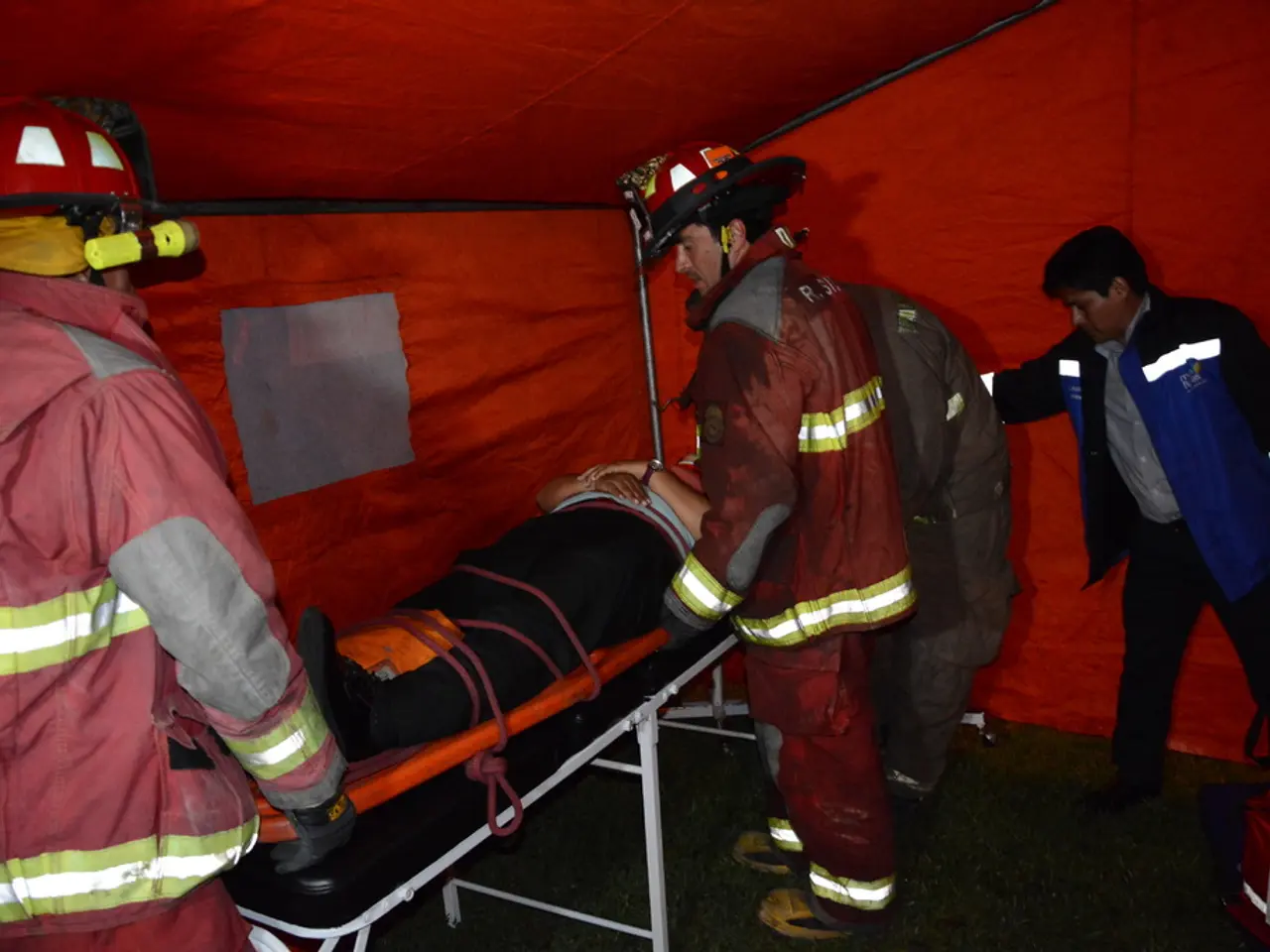Wilderness First Aid Course Evaluation Report
Prepare for Backcountry Emergencies with NOLS Wilderness First Aid Class
Embark on an enriching journey towards becoming a confident and competent first aid responder in remote wilderness settings with the National Outdoor Leadership School (NOLS) Wilderness First Aid (WFA) course. This comprehensive two-day weekend programme equips participants with essential skills to manage various injuries and emergencies in the backcountry.
The NOLS WFA class covers key topics including patient assessment, management of common injuries, more serious emergencies, wound care, and long-term patient care in backcountry settings. The curriculum is evidence-based and supported by a medical advisory panel, ensuring the latest wilderness medicine protocols are taught.
The hands-on learning approach is a crucial element in NOLS courses. Students spend a significant amount of time outdoors engaging in realistic scenarios where they apply what they have learned through lectures and demonstrations. This experiential method includes practicing skills such as improvising splints, moving and carrying patients over rough terrain, and performing emergency interventions in dynamic, practical exercises.
The class uses a step-by-step methodology called the Patient Assessment System, which provides a checklist for dealing with wilderness first aid situations. Participants also learn how to handle emergency situations where help may not be immediately available. To aid in these situations, students practice improvising first aid gear when necessary, such as using a rolled-up shirt as a makeshift splint.
Upon completion of the class, participants receive Wilderness First Aid certification. They can also learn how to use an EpiPen and receive certification to legally purchase and carry one. The NOLS WFA class is offered through REI and provides an REI member discount.
The class is taught by experienced instructors, one of whom is an EMT. The standard first aid kit bought in a store may need to be modified for wilderness situations, and the NOLS WFA class provides suggestions for modifying a first aid kit. The class can accommodate an eclectic group of students, ranging from first responders to senior citizens to Eagle Scouts and everyday hikers.
It's important to note that the NOLS wilderness first aid certification needs to be re-certified every two years, but this may not be necessary for the everyday hiker. The skills learned in this class, however, can potentially save someone's life and instil a sense of confidence in participants.
The NOLS wilderness first aid classes are offered in various locations, providing opportunities for individuals across the country to partake in this life-saving course. So, whether you're an avid hiker, a scout leader, or simply someone who enjoys spending time in nature, this course is an invaluable resource for ensuring your safety and the safety of those around you in the wilderness.
[1] NOLS Wilderness Medicine: https://www.nols.edu/wilderness-medicine/ [2] REI Co-op: https://www.rei.com/learn/expert-advice/wilderness-first-aid.html [3] American Heart Association: https://www.heart.org/en/cpr-first-aid [4] American Red Cross: https://www.redcross.org/take-a-class/cpr-and-first-aid/first-aid/first-aid-training [5] Wilderness Medical Society: https://wms.org/
- To ensure safety while hiking, trekking, or camping in remote wilderness areas, consider enrolling in the National Outdoor Leadership School (NOLS) Wilderness First Aid (WFA) class.
- In addition to learning patient assessment and managing common injuries, students will also practice improvising gear like splints and using therapeutic tools such as an EpiPen.
- For those who enjoy spending time in nature for health-and-wellness purposes, embarking on a NOLS WFA course can arm you with crucial skills for fitness-and-exercise and therapies-and-treatments in the wilderness.
- Embracing the outdoors and connecting with nature should be a harmonious experience, and knowing how to handle emergencies in the wilderness can bring peace of mind to science enthusiasts and curious learners alike.
- By augmenting your gear with wilderness-specific essentials, such as properly modifying a first aid kit, you can be better equipped to respond to any unexpected medical situations that may arise while on trails or in the wilderness.




